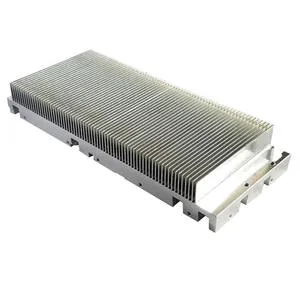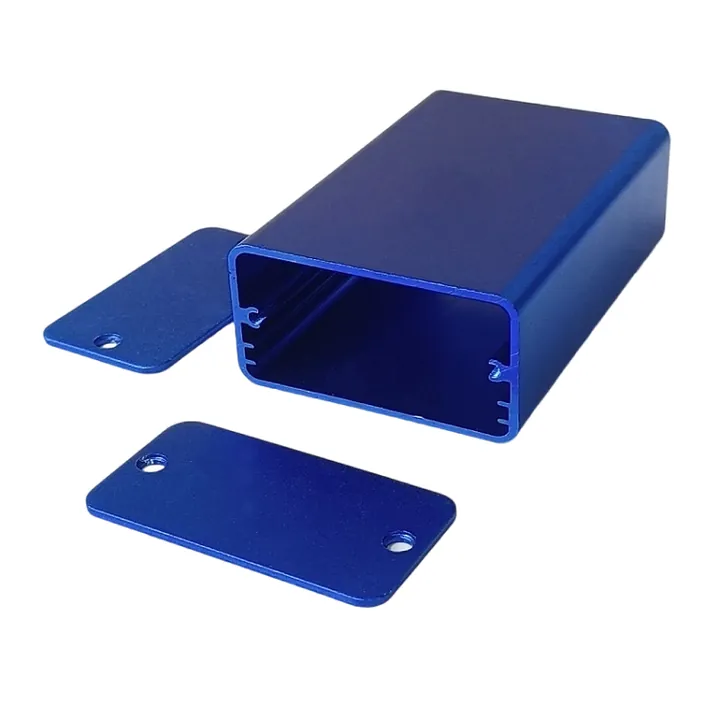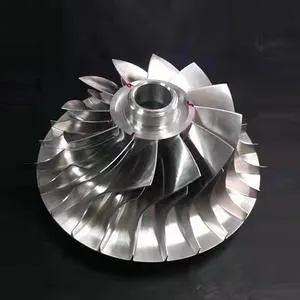CNC Machining Morocco: Manufacturers & Industry Guide

Part 1: Market Size and Growth
Morocco has moved from low-cost assembly to higher-value precision work, and I have watched CNC machining sit at the center of that shift. The country links Africa and Europe through short sea routes and daily air cargo. That makes delivery windows tighter and costs lower. CNC shops in Casablanca, Tangier, and Kenitra now serve aerospace, automotive, energy, and medical orders with growing confidence.

I see more tier-1 and tier-2 suppliers adding multi-axis mills, turning centers, and coordinate measuring machines. Local firms aim for complex prototypes first, then scale to repeat batches. Robotics and shop-floor data capture spread fast because the business case is clear. Applications range from aircraft brackets and engine housings to gearbox parts and custom tooling. The customer mix is broad, so shops learn to switch between small precision batches and medium runs with clear changeover rules.
Why the market keeps expanding
I often hear that Morocco wins on labor cost alone, but the real draw is process maturity. Free zones help with customs speed, and training centers feed the shop floor with CNC programmers. When I visit clusters near the airport in Casablanca, I see vendors who speak the language of PPAP, AS9100, and NADCAP audits. They understand torque specs and tool life plots. They also manage supplier scorecards, and they keep NCRs visible. That discipline builds trust with European OEMs who need reliable partners outside saturated Western hubs. I also see a cultural edge: teams stay calm under deadline pressure, and managers escalate issues early. This is not hype. It comes from dozens of production launches that forced better methods. The energy sector now asks for stainless and Inconel jobs, and that pushes coolant systems, cutters, and inspection routines to a higher bar. I believe the next wave will mix subtractive machining with near-net casting and additive, so waste drops and takt time stays stable. Capital still matters, but capability is the real moat, and Morocco understands that very well.
Part 2: Leading Companies
Safran Nacelles Morocco
Contact Now
Safran operates major aerospace sites near Casablanca’s Midparc. The team grew around nacelle components and aerostructure parts, and it built deep experience in high-spec machining and finishing. The site works inside strict quality systems, and the culture expects continuous improvement.

The plant machines complex aluminum and titanium parts, then moves them through surface prep and assembly cells. Programs use multi-axis centers with probing and in-process checks. The staff adapts to engineering changes with clean revision control. I like how they connect machining data to line KPIs, so problems are visible early.
Safran serves the global aerospace market and supports nearby OEM lines. Its technical edge sits in process capability on thin-walled parts and tight tolerance bores. The site aligns to AS9100 and often pursues NADCAP scopes for special processes. Internal awards highlight teams that reduce scrap and shave minutes off cycle time without risk.
Mecachrome Morocco
Contact Now
Mecachrome built a reputation in precision parts for engines and aerostructures, and the Morocco unit follows that playbook. The site is close to the Casablanca airport, which speeds inbound materials and outbound parts. Leadership comes from seasoned European programs, so expectations are clear.

The factory focuses on milling, turning, and complex drilling on aluminum, titanium, and high-strength steels. It invests in tool presetting, shrink-fit holders, and dynamic balancing to protect surface finish. SPC charts sit on the wall, and operators own their numbers, which I love to see.
The main industries are aerospace and high-end automotive prototypes. Innovation shows up in fixture design, chip evacuation, and toolpath optimization to reduce chatter. Certifications include ISO 9001 and AS9100, and customer audits are part of the rhythm. Teams earn recognition when they hold Cpk above target for several quarters in a row.
Latecoere Morocco
Contact Now
Latecoere’s Morocco base supports aerostructure work and precision subassemblies. The site blends machining with kitting and final checks, and it works inside robust export procedures. Management keeps a sharp eye on training, so new hires learn both safety and metrology from day one.

Machined parts flow to assembly stations where torque and traceability matter. The plant uses 3-, 4-, and 5-axis centers, and it runs detailed first-article routines for new parts. Programming teams test toolpaths in simulation before they hit the floor, which avoids broken cutters and spindle downtime.
Latecoere supplies global aerospace programs and selected defense customers. Technical highlights include thin-sheet support tooling, precision brackets, and weight-driven redesigns. The site aligns with AS9100 and pursues NADCAP for special steps run with partners. Awards often come from on-time delivery streaks and clean audit scores from OEMs.
| Company | Founded | Core Products | Industries | Certifications |
|---|---|---|---|---|
| Safran Nacelles Morocco | Casablanca site | Nacelle and aerostructure components, precision machining | Aerospace | AS9100, NADCAP scopes |
| Mecachrome Morocco | Casablanca site | Engine and aerostructure parts, multi-axis machining | Aerospace, Automotive proto | ISO 9001, AS9100 |
| Latecoere Morocco | Casablanca site | Aerostructure brackets, subassemblies, tooling | Aerospace, Defense | AS9100, NADCAP pathways |
What I look for when I visit a shop
When I walk a Moroccan machining shop, I start at receiving. I check heat numbers and material certs. I look at the quarantine zone and at how often it is used. Then I move to the tool crib and see how presetters are used to keep changeovers short. I want to see clean coolant management and chip handling. I ask operators to show me the last three in-process checks, and I ask them what the next risk is. The best shops answer without guessing. They point to control plans and recent alerts. This is how I know a plant can hold tolerances when the schedule gets loud. If a customer calls with a change, the shop that keeps drawings current and programs versioned will recover faster. That is the real edge.
Part 3: Trade Shows and Industry Events
Automotive Meetings Tangier-Med
Automotive Meetings Tangier-Med brings OEMs and suppliers together for B2B sessions inside the free zone ecosystem. I like the format because buyers arrive with clear needs, and suppliers arrive with clean capability summaries. The show helps machining firms meet plastics, casting, and logistics partners in one place.

The event runs program presentations, plant tours, and one-to-one meetings. It draws engineers who care about tolerance stacks, tooling, and PPAP documentation. Highlights include supplier days with real numbers, not vague promises, and workshops on quality systems that match what audits demand.
Marrakech Airshow (AeroExpo)
The Marrakech Airshow gathers aerospace primes, tier-1s, and defense delegations. CNC shops use it to show fixture design, lightweight strategies, and NADCAP journeys. I have stood at booths where shop teams display first-article parts and talk through inspection routines.

The show often features flying displays and a strong static lineup, but the real value is in the technical talks. Highlights include sessions on special processes, export rules, and supply chain risk, which matter when you plan multi-year aerospace contracts.
| Event | Date | Location | Highlights |
|---|---|---|---|
| Automotive Meetings Tangier-Med | Annual or biennial | Tangier Free Zone | B2B meetings, plant tours, PPAP and logistics focus |
| Marrakech Airshow (AeroExpo) | Biennial cycle | Marrakech | Aerospace supply chain, special processes, audits and export rules |
How I use events to qualify suppliers
I plan my meetings before I arrive. I send prints with basic GD&T and ask shops to prepare their process flow. Then I visit their booths and look for honest gaps. If a shop says “we do everything,” I push for details on metrology, GR&R, and cutting data in tough alloys. The best teams show failure stories and what they changed. After the show, I schedule a line walk. I bring a short audit checklist and a stopwatch. I time changeovers and ask operators to run the first five pieces with me watching. That trip always tells the truth.
Part 4: Impact of Global Trade Policies
Global rules hit CNC machining faster than many expect. Tariffs shift the cost of raw stock. Sanctions complicate sourcing for special alloys and coatings. Export controls tighten part by part. Morocco manages these shocks by using free zones, fast customs, and diversified shipping lanes. When I help plan a sourcing move, we draw a map of every step and assign a risk to each handoff.

Local substitution grows when shipments wobble. Shops learn to work with regional foundries for near-net shapes, then finish them in-house. The country also leans on EU and US trade links for audit credibility. That helps with aerospace and medical devices where traceability is strict. Teams invest in training for ITAR, EAR, and dual-use rules so that quotes do not create export exposure.
Where risk meets opportunity
I treat policy as a set of constraints that can make you more creative. If a coating needs a NADCAP house abroad, I plan batch sizes and shipping rhythm so lead time is stable. I seek dual sources for critical plate and bar stock. I push for modular fixtures that handle families of parts, so one disrupted route does not stall a line. Supply chains with clear drawings, clean BOMs, and crisp change control ride out policy shocks better. Morocco has the right habits for that. The culture of daily stand-ups, layered process audits, and root-cause follow-ups turns policy noise into projects you can finish. I also watch currency swings. Shops that price in multiple currencies and hedge wisely protect margins. They can keep operators, keep machines loaded, and keep scrap low. That is what customers actually need: steady output when the news changes.
Part 5: Conclusion
I see Morocco’s CNC machining future as bright and practical. The clusters near Casablanca and Tangier keep adding capability, not just headcount. Young programmers bring strong CAD/CAM skills, and veterans teach them respect for fixtures and tools. The blend of cost discipline, audit culture, and real engineering gives Morocco a durable edge. If you need complex brackets, housings, or tooling, you can source them here with confidence and with short transit to Europe.
Challenges remain, and I do not hide them. Some alloys still require long lead times. Some special processes must travel. Training must keep up with five-axis complexity and probing routines. But the mindset is right, and the projects that matter move forward. If you plan a program, pick partners who show their data, keep their promises simple, and escalate early. I have done that here, and the results were solid. Morocco will keep climbing the value chain, one reliable cycle at a time.
Recommended Reading:
CNC Machining Portugal
CNC Machining Peru
CNC Machining New Zealand
CNC Machining Qatar
CNC Machining Kuwait
CNC Machining Greece
CNC Machining Ukraine
CNC Machining Hungary
The Comprehensive Guide to Powder Coating Aluminum?
Anodizied Aluminum Solar Frame
Extrusion Aluminum Pipe Anodized Sandblasted Black
Modular Framing Systems



